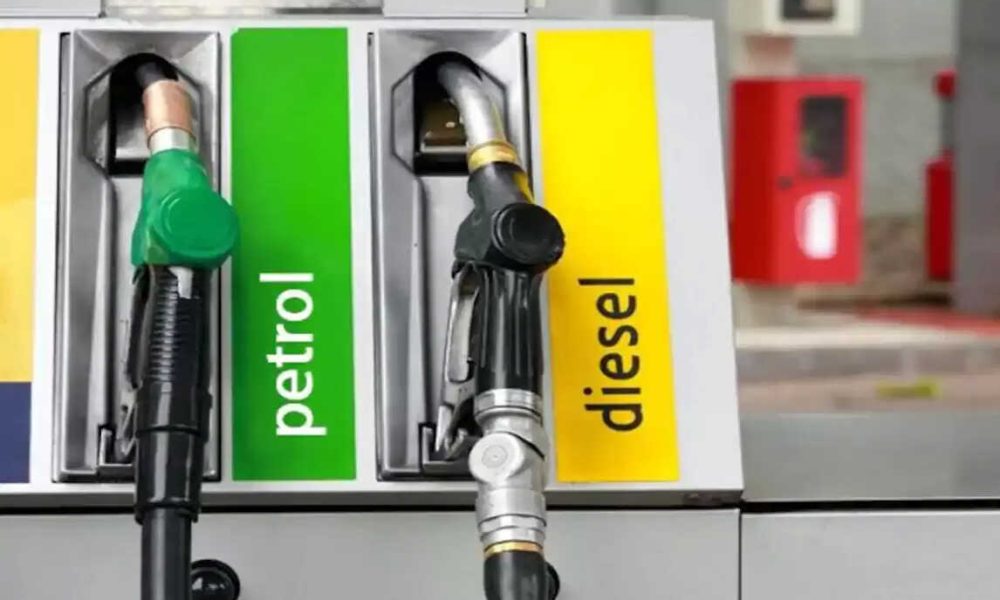Nigeria’s petroleum marketers are optimistic that they will sell Premium Motor Spirit (PMS) at a lower price than the Nigerian National Petroleum Company Limited (NNPCL) once Dangote Refinery begins direct sales to them. This assertion was made by the spokesperson of the Independent Petroleum Marketers Association of Nigeria (IPMAN), Chinedu Ukadike, during an exclusive interview with the press on Monday.
Ukadike expressed confidence that purchasing directly from Dangote Refinery would eliminate additional costs imposed by NNPCL, thus allowing marketers to offer petrol at competitive prices. This update follows recent developments in which the Federal Government, through Finance Minister and Chairman of the Naira-for-Crude Implementation Committee, Wale Edun, confirmed that marketers are now authorized to buy petrol directly from Dangote Refinery.
This decision marks a significant shift, ending the previous arrangement where NNPCL acted as the sole offtaker of products from Dangote Refinery. Initially, upon the refinery’s first distribution of PMS, NNPCL held exclusive rights to lift and market the fuel. However, Edun announced last Friday that part of the Naira-for-Crude deal now enables marketers to bypass NNPCL and engage in direct transactions with the refinery.
The new framework arrives amid rising petrol prices, with NNPCL stations in Abuja recently selling at N1,030 per liter, while other stations have prices ranging between N1,100 and N1,200. NNPCL has also set ex-depot prices between N1,040 and N1,100 per liter, but marketers have voiced discontent, rejecting these rates as unfeasible for sustaining business operations.
For many marketers, the approval to purchase from Dangote Refinery offers a lifeline by reducing their reliance on imports. Ukadike emphasized that IPMAN, which controls 70 percent of Nigeria’s filling stations, eagerly anticipates Dangote Refinery’s commencement of direct petrol sales. He noted that eliminating NNPCL’s markup would allow them to offer cheaper petrol to consumers.
“We are waiting for Dangote Refinery to finalize the direct sale arrangements and release their price template,” Ukadike said. “Our petrol price will definitely be more affordable than NNPCL’s retail price. Since we will be sourcing the product directly, the fees that NNPCL adds will be removed, benefiting both marketers and consumers.”
Ukadike further highlighted that, unlike government employees, petroleum marketers rely entirely on business turnover for profits. “We are hopeful that we will meet with Dangote Refinery soon to conclude these arrangements,” he added.
Similarly, Billy Gillis-Harry, President of the Petroleum Products Retail Outlets Owners Association of Nigeria (PETROAN), revealed that his association had submitted a request to Dangote Refinery for direct purchase but was yet to receive a response. Gillis-Harry stressed the importance of receiving a clear price template before transactions can commence.
“They asked us to submit a letter, which we have done, but we are still waiting for feedback,” Gillis-Harry explained. “We cannot send trucks to lift petrol without knowing the product’s price. Nonetheless, we remain committed to supporting Dangote Refinery’s operations.”
While marketers are optimistic, some industry observers remain cautious about the promise of reduced prices. Recent hikes in fuel costs, even after Dangote Refinery’s distribution began, have fueled skepticism about how soon the price drop will materialize.
Oil and gas analyst Olabode Sowunmi remarked that Dangote Refinery’s primary focus may not be selling PMS at discounted rates, given the refinery’s need to maintain profitability. “The refinery wasn’t designed to provide cheap petrol but to ensure local production, reducing the dependence on imports,” Sowunmi noted.
This uncertainty follows a sharp increase in petrol prices under President Bola Ahmed Tinubu’s administration. In June 2023, the removal of fuel subsidies pushed prices from N238 per liter to over N600. By October 9, 2024, NNPCL stations raised prices to N1,030 per liter, with other outlets selling at even higher rates.
The economic impact extends beyond petrol prices. Diesel and cooking gas prices have surged, with a 12kg cylinder of Liquefied Petroleum Gas (LPG) rising from N9,194 in 2023 to N15,552 in 2024. Meanwhile, electricity costs have also skyrocketed following a 240 percent tariff hike approved by the Nigerian Electricity Regulatory Commission (NERC) earlier this year, exacerbating financial pressures on households and businesses.
As marketers await the refinery’s final move, many Nigerians are hopeful that Dangote Refinery’s direct engagement will help stabilize the energy market and reduce fuel prices, offering some relief amid the challenging economic climate.

